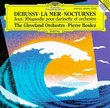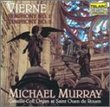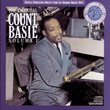| All Artists: Johannes Brahms, Herbert Blomstedt, Vance George, San Francisco Symphony Orchestra, Wolfgang Holzmair, Elizabeth Norberg-Schulz Title: Brahms: Ein deutsches Requiem Members Wishing: 1 Total Copies: 0 Label: Decca Release Date: 5/16/1995 Genre: Classical Styles: Opera & Classical Vocal, Historical Periods, Early Music Number of Discs: 1 SwapaCD Credits: 1 UPC: 028944377125 |
Search - Johannes Brahms, Herbert Blomstedt, Vance George :: Brahms: Ein deutsches Requiem
 | Johannes Brahms, Herbert Blomstedt, Vance George Brahms: Ein deutsches Requiem Genre: Classical
Herbert Blomstedt well understands the virtues of simplicity, making this direct and refreshing performance of Brahms's ubiquitous choral masterpiece the best available since the famous Klemperer/EMI recording. Without fee... more » |
Larger Image |
CD DetailsSynopsis
Amazon.com Herbert Blomstedt well understands the virtues of simplicity, making this direct and refreshing performance of Brahms's ubiquitous choral masterpiece the best available since the famous Klemperer/EMI recording. Without feeling any need to indulge in saccharine expressiveness, the Swedish conductor's work is all the more moving for being so excitingly played and sung. No funereal gloom here, just the sweet solace that Brahms clearly intended. --David Hurwitz Similarly Requested CDs
|
CD ReviewsWonderful performance! 01/19/2001 (5 out of 5 stars) "My first introduction to Brahms' Requiem was when I played the second trumpet part as a freshman in my college orchestra. The recordings the library had, and consequently the ones I've heard (other than this one), are the Chicago/Levine and Atlanta/Shaw. This recording far surpasses both. The San Francisco performance is powerful in effect, yet restrained in sound. By this I don't mean it is quiet or lacking in any way. Rather, it doesn't have the air of "religious kitsch" (as Charles Rosen might put it) that the Chicago/Levine recording does. Blomstedt understands that Brahms wrote his requiem as a source of solace to the living and that it is supposed to be uplifting, not sad and slow. This understanding is especially clear in the fugue at the end of the third movement; Blomstedt's tempo is crisp while Levine's plods along like a turtle through molasses. The San Francisco basses on their pedal D don't overpower the rest of the orchestra and chorus like the Chicago basses do at times. The SF brass section has a very warm, round sound that still projects clearly, unlike the Chicago brass section which sounds like they are overplaying, resulting in a distorted sound. The SF chorus and soloists are also wonderful. I think overall the San Francisco recording is so good because it isn't pretentious. If you are looking for an excellent recording of the Brahms Requiem, this is the one to get!" A very good recording klavierspiel | TX, USA | 06/19/2003 (4 out of 5 stars) "Blomstedt's recording with the forces of the San Francisco Symphony and Chorus emphasizes the consolatory side of Brahms' Requiem, keeping things moving effectively in music that can easily seem heavy and lugubrious. The second movement, a sort of funeral march in triple time, and the fourth, choral movement especially gain from this treatment.The two soloists in this recording, while not exactly liabilities, do not break from the rest of a pack that includes luminaries like Kiri te Kanawa and Sherrill Milnes among singers who have recorded these brief but important parts. Norberg-Schultz is a bit edgy in her high-lying solo and Wolfgang Holzmair sounds lightweight and occasionally is swamped by the massed choral and orchestral forces. Still, overall, this is a very good choice for a CD of this great choral work." Bland interpretation but in good sound Santa Fe Listener | Santa Fe, NM USA | 09/18/2005 (3 out of 5 stars) "Blomstedt could be maddeningly inconistent, showing plenty of dynamism in some of his Decca recordings with San Francisco but then veering into utter neturality, as with this German Requiem. Nothing goes wrong, and the sound is very clear, but who cares? It takes reverence and drama to pull off this quintessentially Victorian work, and none of htat is present."
|

 Track Listings (7) - Disc #1
Track Listings (7) - Disc #1








